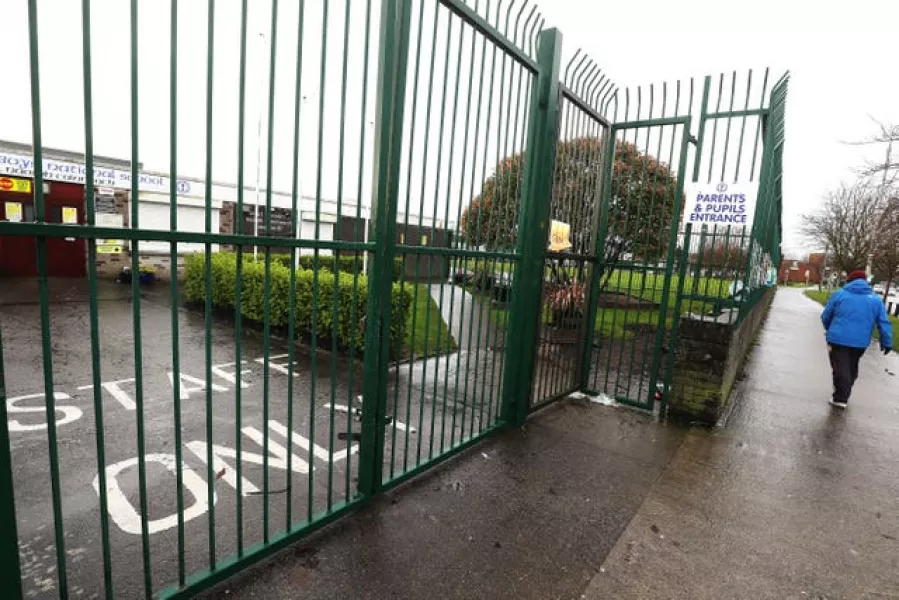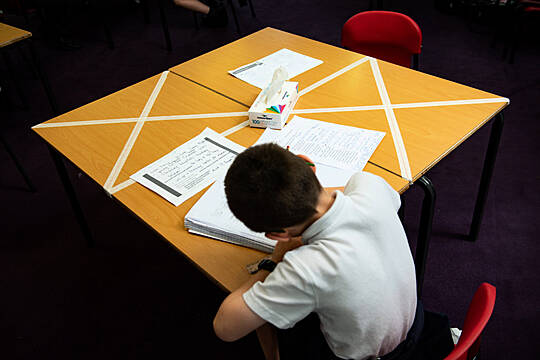Parents of children returning to school next week have been warned that the reopening is not a signal for house visits and playdates.
The phased reopening of schools and childcare will see some pupils return to the classroom on March 1st.
Junior and senior infants, as well as first and second class in primary schools, will be among the first back to school. Leaving Certificate students will also return to the classroom next week.
Liz Canavan, assistant secretary at Department of the Taoiseach, said the Government wants to keep schools and childcare services open as pupils return on Monday.
“That means that the opening of schools is not a signal for anything else, household visits, playdates, meeting more than one other household outdoors are all still out,” Ms Canavan added.
Data is showing us that the prevalent strain of the virus in the country is more transmissible
Advertisement
“Data is showing us that the prevalent strain of the virus in the country is more transmissible than that which was in circulation during 2020.
“Previously, one in five household contacts of a positive case contracted the virus. Now, it is one in three.
“It will be more important than ever that we continue to observe the public health behaviours that have allowed us to manage the virus for almost 12 months now.
“We must continue to work from home and we must continue to stick with our own households.
“We will monitor the virus closely through the month of March and into April. If we can reopen our schools and childcare carefully and safely, we will then have options to reopen other areas of activity.”
This video contains important back to school advice for children in junior infants to second class. You are encouraged to watch this video with your child before they return to school. For more see https://t.co/QsiMWEddKJ pic.twitter.com/QavL67G7gv
— Department of Education (@Education_Ire) February 23, 2021
Advertisement
Figures from the Social Activity Measure, a collaboration between the Department of the Taoiseach and the ESRI, revealed almost everyone believe their behaviour was as or more careful than average.
Despite low overall rates of socialising, people have a misperception others are socialising more than they are, the survey found.
The data also revealed the level of compliance with public health measures, which shows that contact with other people is low.
When surveyed last week, around 50 per cent of the population had not met anyone at all outside their household in the past two days.
A large majority had no close contacts outside their household on any given day, it found.
Ms Canavan said despite low overall rates of socialising, people have a misperception others are socialising more than they are.
“It’s a misperception but it is a potentially dangerous one, as people might think everyone is relaxing when actually that is not true,” she added.
“Although people find the restrictions tiresome, most remain very worried about the virus.
“Fatigue with restrictions is not presently linked to engaging in more social activity.

“A large majority believe that preventing the spread of the virus is more important than the burden of lockdown and few expect an early easing of restrictions.”
It also emerged residents are still travelling on holidays abroad, despite the potential of facing fines of up to €2,000.
Ms Canavan said that while it is good news that schools and childcare will reopen, the decision to extend Level 5 restrictions was a “difficult one”.
“(It) will have considerable impact on all parts of our economy and society,” she added.
“We are not out of the woods yet.
“We continue to have an unacceptably high level of disease in the community and our healthcare workers and our health system remain under considerable pressure
“This new variant behaves different – it is like a new virus, outbreak data is telling us it spreads more easily, faster and outbreaks are bigger. It will exploit every opportunity we give it.”







